|
Myanmar’s economic crisis has put small businesses under pressure. We hear from entrepreneur and small business owner Ma Nan Htet Htet about how a microloan supported by Community Partners International (CPI) is helping her weather the storm.
"I saw an opportunity to produce moringa powder and other value-added products."
In a field in Myanmar’s Dry Zone, about 150 miles south of Mandalay, two solar tunnel dryers sit gleaming in the blistering midday sun. Surrounded by scrubland, their pearlescent white canopies and graceful curves lend them a futuristic quality.
The tunnel dryers belong to a woman-led small business, Nan Htet Myanmar. The company is the brainchild of entrepreneur Ma Nan Htet Htet who set it up in 2017 after working for several years in the tourism industry. Having traveled widely around Myanmar, her concept was to bring the country’s diverse range of regional food and wellness products to city-dwelling populations.
For the first few years, Ma Nan Htet Htet focused on sourcing finished products from communities across Myanmar. “Nan Htet Myanmar sells local food products including fruit, flowers, vegetables, as well as natural fertilizers,” Ma Nan Htet Htet explains. “We focus on high-quality and value-added products.”
In 2019, Ma Nan Htet Htet was able to build enough capital and garner support to move into production. The tunnel dryers were part of this expansion, enabling her to dry items used in the company’s new range of original, own-brand products. Around this time, she spied a business opportunity: the moringa tree. This fast-growing, drought-resistant plant is widely cultivated in Myanmar. It is considered by some to be a superfood, offering a good source of vitamins C and A, and various minerals and amino acids. The tree is entirely edible, from root to bark. “I had known about the benefits of moringa for some time. All the parts of the moringa plant are useful and important food sources and offer many essential nutrients and health benefits,” Ma Nan Htet Htet explains. “Most of the farmers grow moringa plants here but demand was limited. Only one company was using it to produce wellness products. I saw an opportunity to produce moringa powder and other value-added products.” "The loan is not only good for us but also local farmers and agricultural workers."
As Myanmar’s economic situation deteriorated during the COVID-19 pandemic and the turmoil following the 2021 coup, Ma Nan Htet Htet struggled to keep the business afloat. “Myanmar’s economic downturn affected us because demand fell and prices for raw materials increased,” she confirms. “We face challenges in the market and it’s very unpredictable.”
In early 2023, Ma Nan Htet Htet saw an opportunity on social media to apply for an interest-free business microloan through an initiative supported by Community Partners International (CPI). She applied successfully and received a microloan of 15,000,000 kyats (c. $7,150 at the time of writing). Loan repayments are made over two years, starting three months after the date of the loan. “I needed the loan to buy raw materials,” Ma Nan Htet Htet explains. “We can only buy moringa leaves and seeds between June and September. The loan enabled me to buy moringa leaves and some bamboo shoots.” “The loan is not only good for us but also local farmers and agricultural workers,” she continues. “If we can’t buy their produce, the moringa leaves will go to waste, and the farmers will lose out. The local people who help harvest the leaves and support our production process will also lose out. This is particularly important because our production runs through the rainy season when there are not many other jobs available.” Overall, more than 20 farmers received income from selling their moringa leaves to Nan Htet Myanmar, and more than 35 local women were employed in harvesting the moringa leaves between July and September 2023.
Help women and families in need in Myanmar:
DONATE
"Some places where moringa plants are grown are not peaceful and have become difficult to access due to the country’s situation."
“We harvest the moringa leaves in the early morning and bring them to the solar dryer tunnels before eleven o’clock,” explains Ma Nan Htet Htet. “We then rinse them at least three times with water and a little salt and leave them to dry for eight to ten hours. Once dry, we grind the leaves into a powder using a machine. To make moringa oil, we send the seeds to a local mill for grinding.”
The production process is not without its problems, however. “We lost a lot of moringa powder early on because we didn’t realize it had to be stored out of direct sunlight. In the sunlight, it can turn yellow and our customers won’t buy it. Also, more recently, raw materials have become scarcer. Some places where moringa plants are grown are not peaceful and have become difficult to access due to the country’s situation.”
The production process is not without its problems, however. “We lost a lot of moringa powder early on because we didn’t realize it had to be stored out of direct sunlight. In the sunlight, it can turn yellow and our customers won’t buy it. Also, more recently, raw materials have become scarcer. Some places where moringa plants are grown are not peaceful and have become difficult to access due to the country’s situation.”
The moringa powder, oil, and Nan Htet Myanmar’s other products are then sold through the company’s shops in Yangon, Mandalay, and Nay Pyi Taw as well as through business-to-business channels. “We also sell to cosmetic companies, pharmaceutical companies, and nonprofit organizations for use in nutrition products,” confirms Ma Nan Htet Htet. “We also sell to consumers through our stores and I also use social media marketing to spur demand for our products.
“On average, we sell about 100 to 150 kilograms of moringa powder per month,” reveals Ma Nan Htet Htet. “In addition, we sell about five to ten liters of moringa oil each month.”
The company also produces noodles, sweet snacks, and desserts using moringa powder and has diversified into other own-brand powders using fish, garlic, ginger, and vegetables. Despite the economic downturn, Ma Nan Htet Htet is staying positive. “We only sell local products so we don’t need to import raw materials or products. This is an advantage for us in the current situation. In the future, I’d like to improve our distribution networks and connections so that we can reach more customers.”
Help women and families in need in Myanmar:
DONATE
Comments are closed.
|
AuthorCPI Admin Archives
July 2024
Categories
All
|
|
|
COMMUNITY PARTNERS INTERNATIONAL
580 California St Fl 16, Ste 1658, San Francisco, CA 94104-1068, USA [email protected] +1 510 225 9676 We are a registered nonprofit 501(c)(3) Public Charity. TAX ID 94-3375666 |
©
Community Partners International

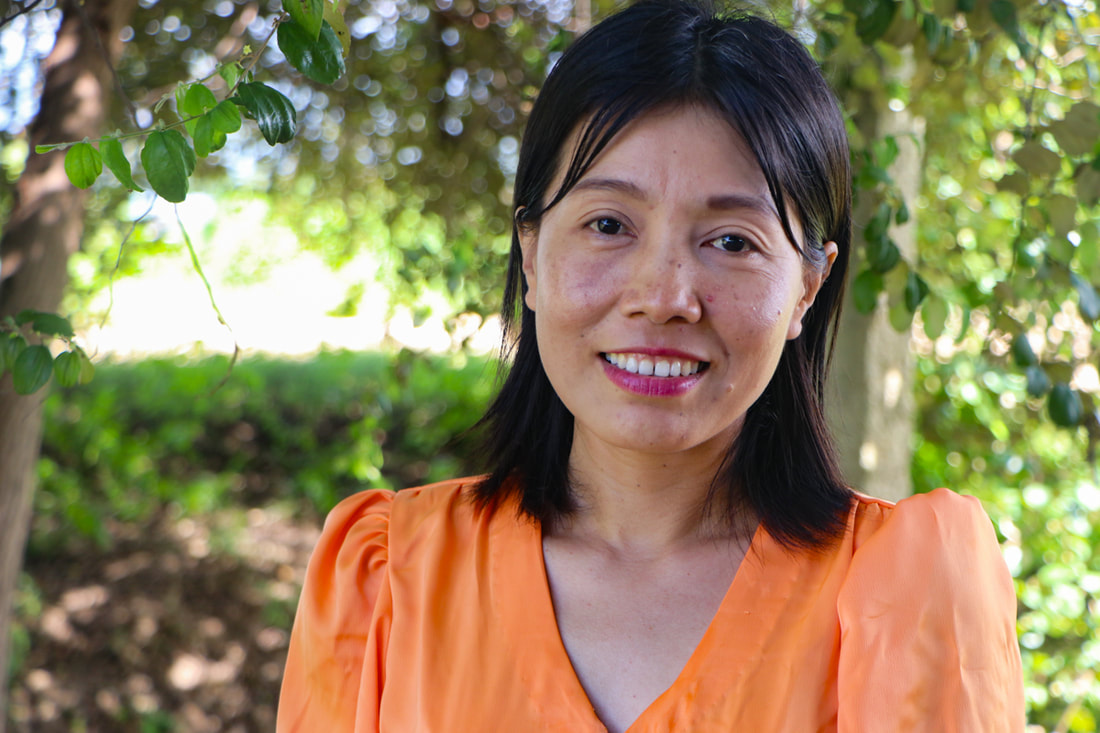
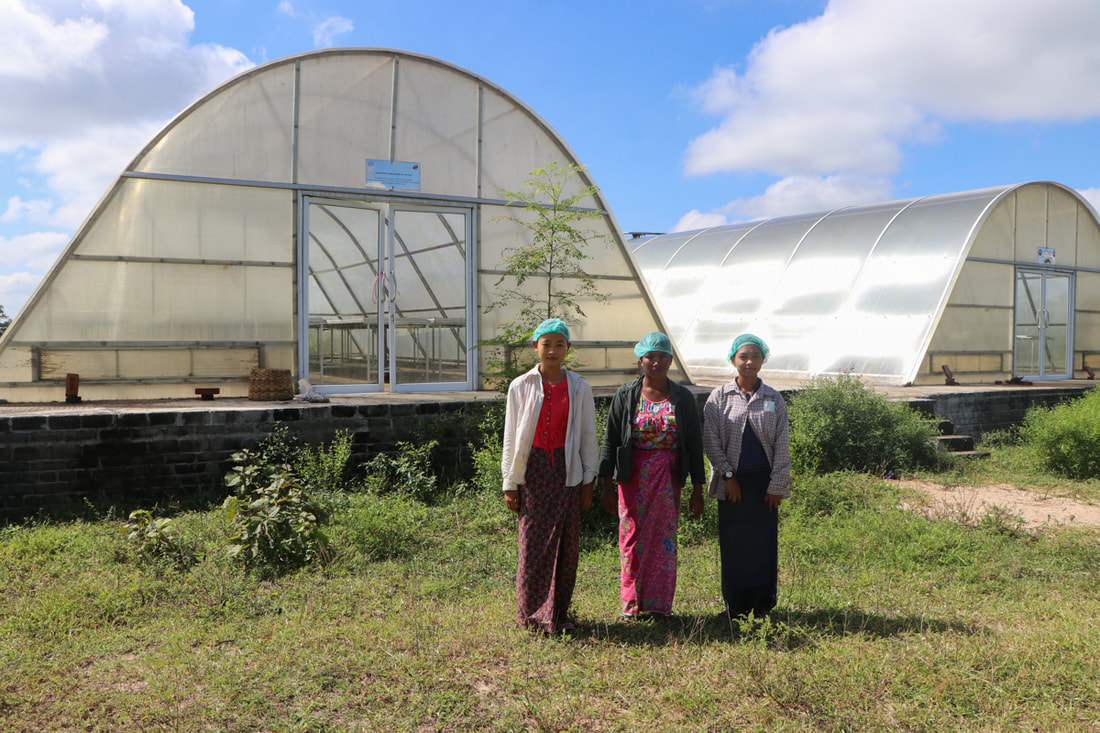
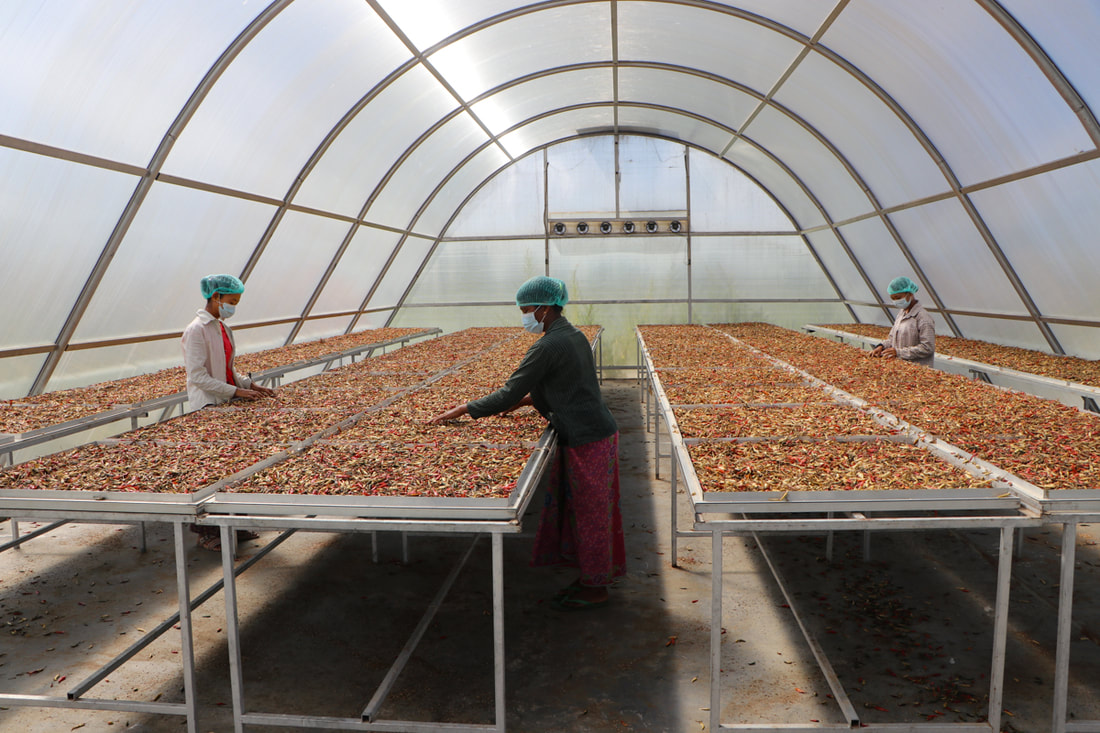
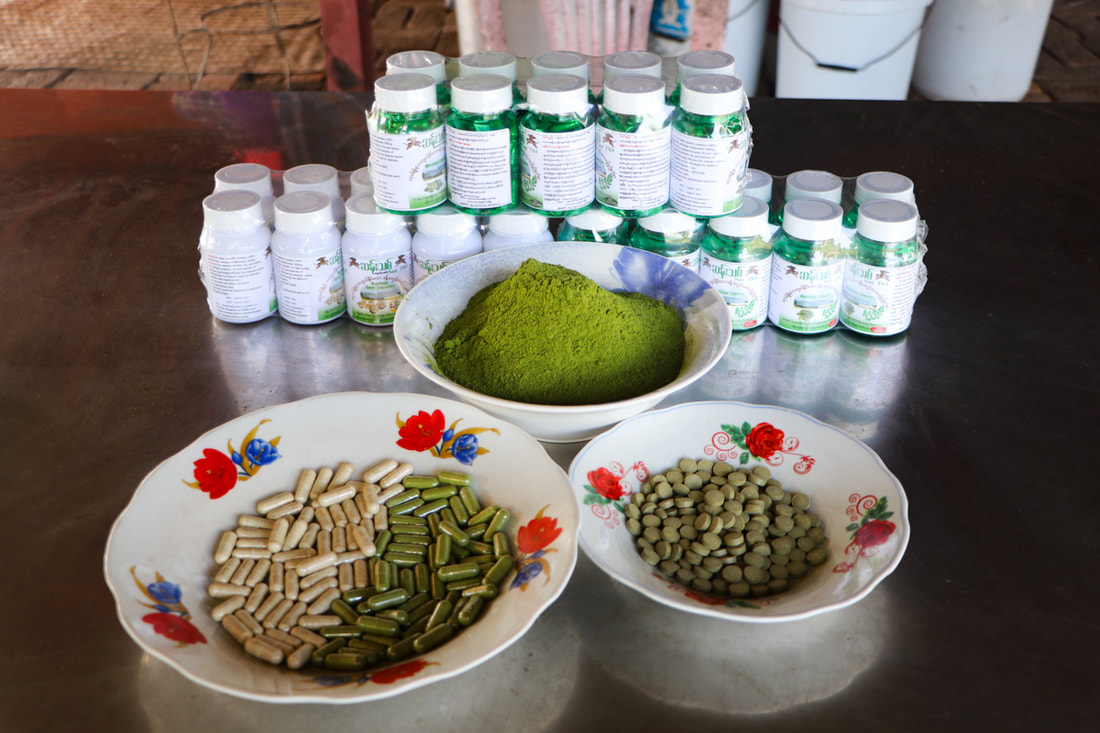
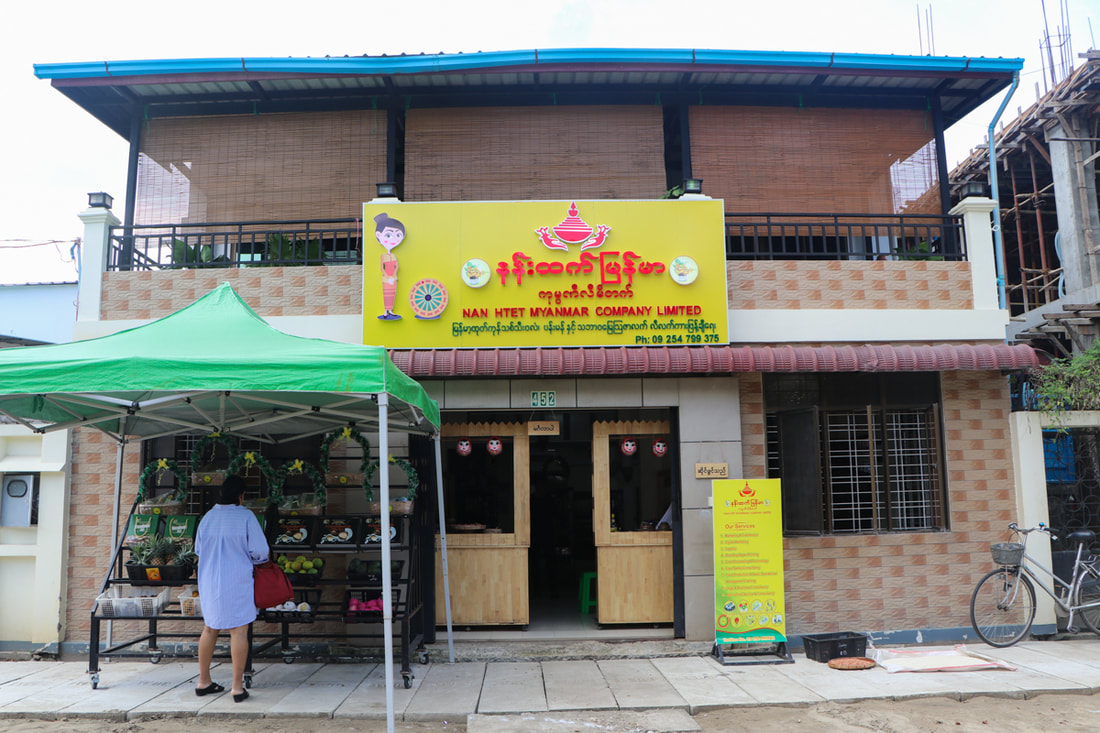
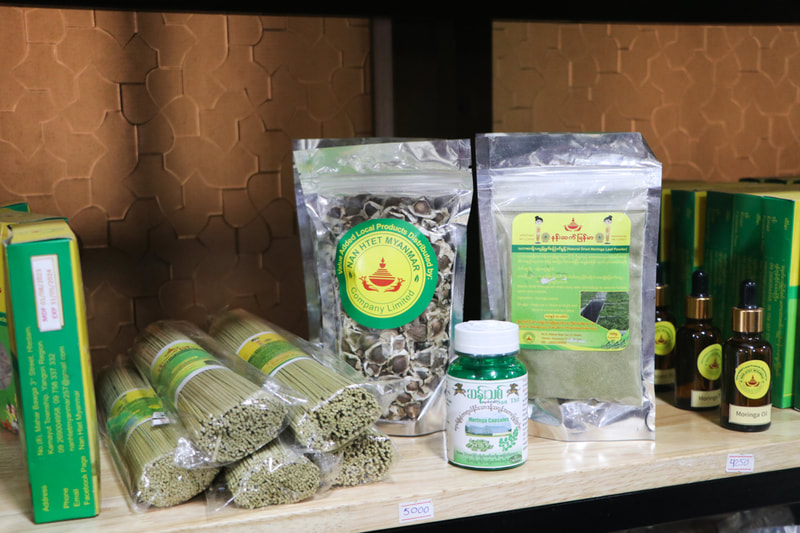
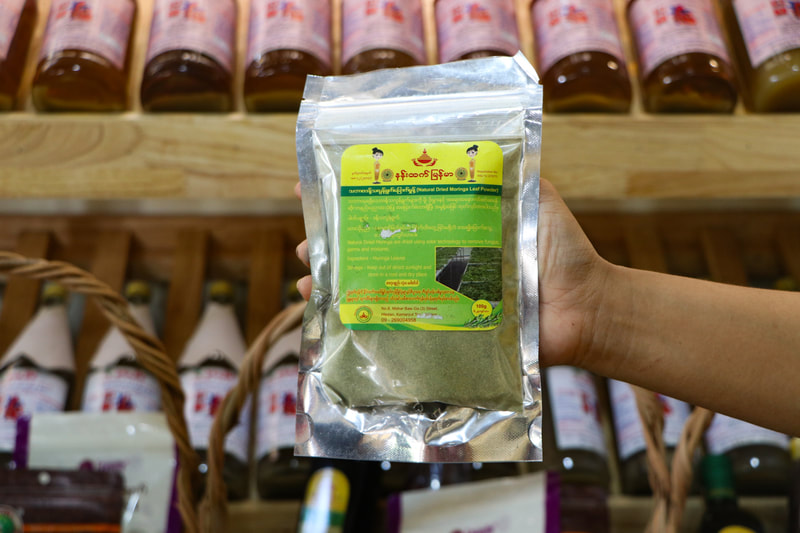
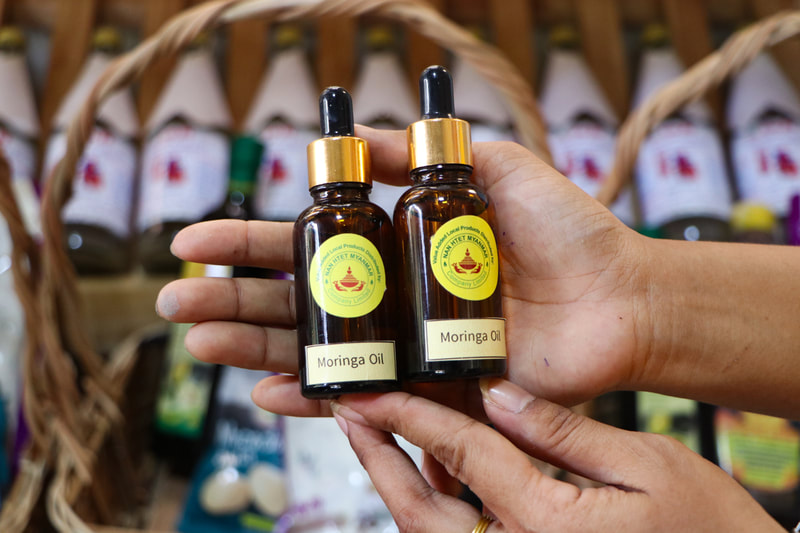
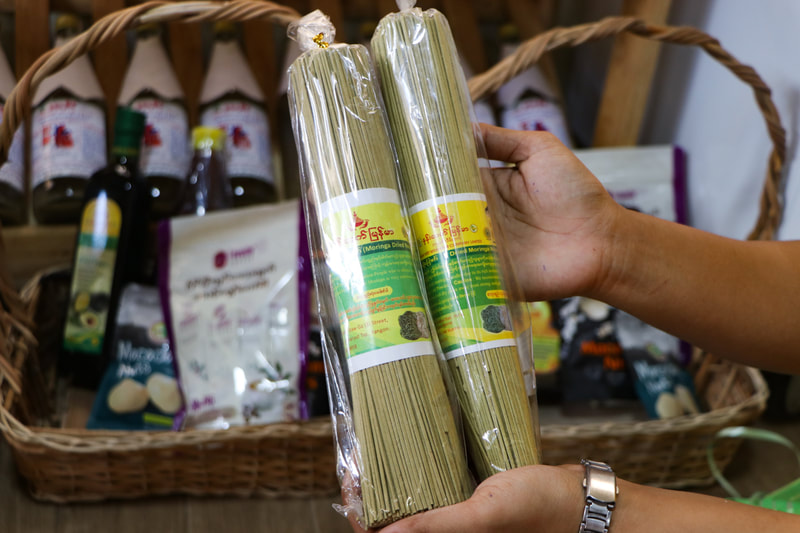
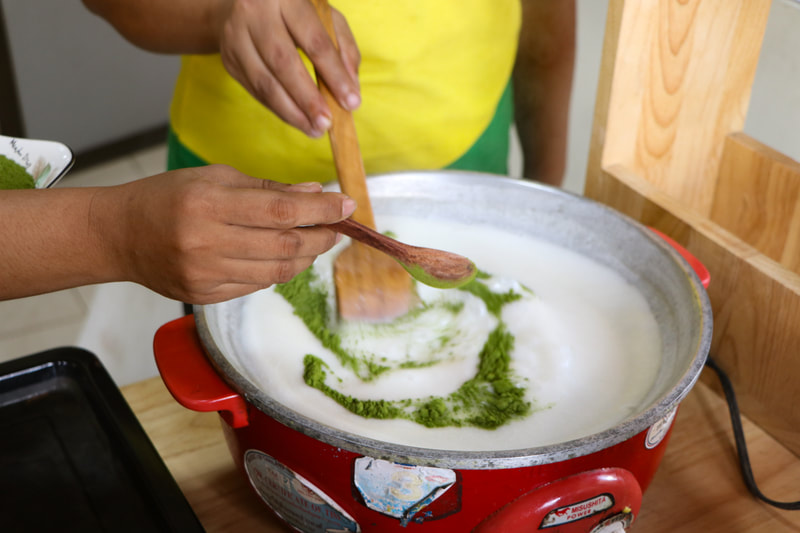

 RSS Feed
RSS Feed
